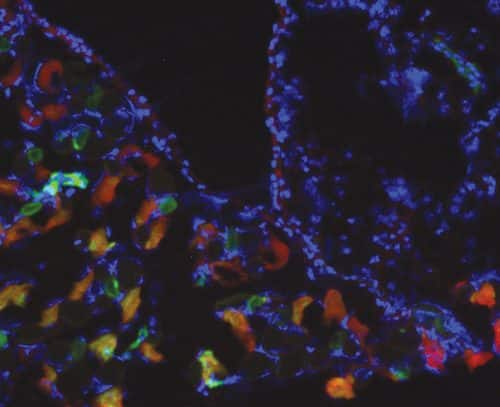Researchers at the Rapaport Faculty of Medicine have discovered a mechanism that enables the development of cancer metastases after surgery

An article published in the journal Cell Reports presents a central mechanism that accelerates the development of metastases after operations to remove cancerous tumors in the abdominal area. The study was conducted by Prof. Yuval Shaked and Associate Prof. Peleg Hasson from the Rappaport Faculty of Medicine with researchers from the Weizmann Institute of Science, Italy and Finland.
Surgery to remove a tumor is one of the accepted ways to treat cancerous tumors. The purpose of the surgery is to remove all the cancerous tissue as well as margins from the healthy tissue to prevent the tumor from returning.
Despite this, in many cases the tumor re-emerges from individual cancer cells left in the surgical area. The renewed outbreak is more violent than the initial tumor and manifests itself in cancer metastases - the development of cancer cells elsewhere in the body. Unlike primary tumors, which are relatively easy to treat with surgery and radiation, metastases are a much more complex challenge and are responsible for approximately 90% of cancer deaths.
The development of metastases after surgery is a well-known phenomenon explained by the fact that in response to surgery, which is a type of injury, the body develops inflammation in the surgical area to protect the area from infections. This inflammation leads, among other things, to a renewed flare-up of the cancer.
In the current work, the researchers discovered that surgeries to remove tumors in the abdominal area cause changes in the lung tissue that increase the likelihood of developing metastases. These changes, which are mainly in the connective tissue of the lung, improve the ability of cancer cells to adhere better to this tissue and thus develop new metastases. The researchers also discovered that the structural change in the connective tissue is related to an enzyme called lysyl oxidase (LOX). This enzyme, which is responsible for connecting the collagen tissue that is part of the connective tissue, changes its structure and thus makes it easier for cancer cells to stick to it. When the researchers inhibited the activity of this enzyme, a significant reduction was achieved in the ability of the cancer cells to adhere to the lung tissue and thus the formation of cancer metastases was reduced.
After an experiment on mice, the researchers examined the process in patients who underwent various surgeries in the abdominal cavity and discovered that in the human body, too, the surgery leads to an increase in enzyme levels and, as a result, an increase in the number of metastases. They hope that the current research will lead in the future to the development of LOX inhibitors that will prevent a renewed flare-up of cancer in patients who have undergone surgery to remove a tumor.
The research was supported by an ERC grant from the European Union and the Rappaport Institute at the Technion.

One response
If I understood correctly, the structural change in the connective tissue was caused by the surgery, and this causes an increase in the LOX enzyme. And the inflammation that occurs following surgery is a natural part of the recovery process.
1) Is it possible to assume that the above process is typical for every surgery? And not just for surgery to remove cancerous tumors?
2) As far as I know, cancer cells are formed on a regular basis in everyone, and the immune system eliminates them on a regular basis in 99.9%+ of cases.
If both points are true, I would expect to see a positive (and causal) correlation between surgery of any kind and the onset of cancer. I wonder if the correlation exists.